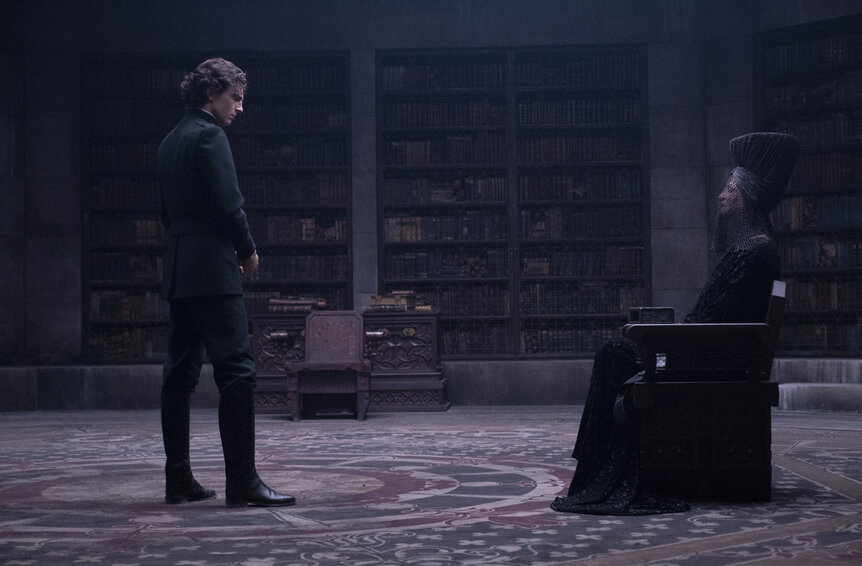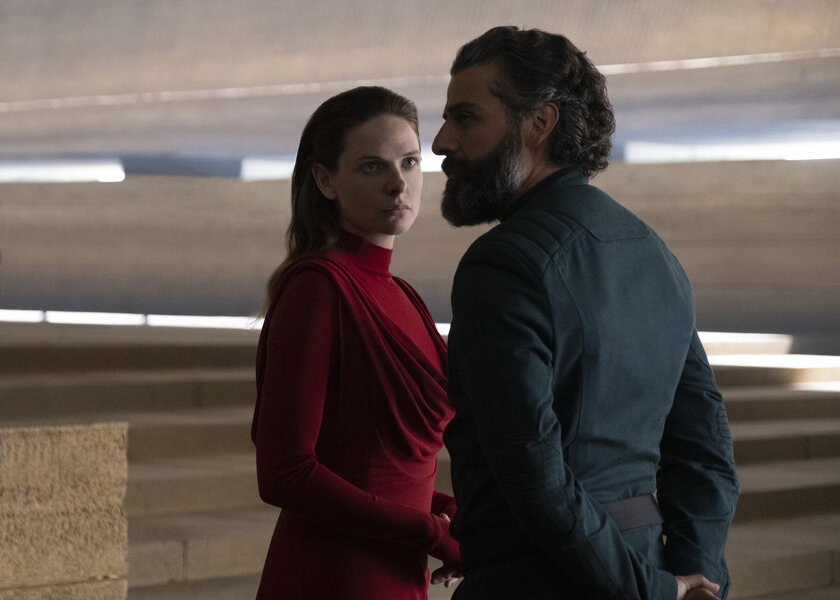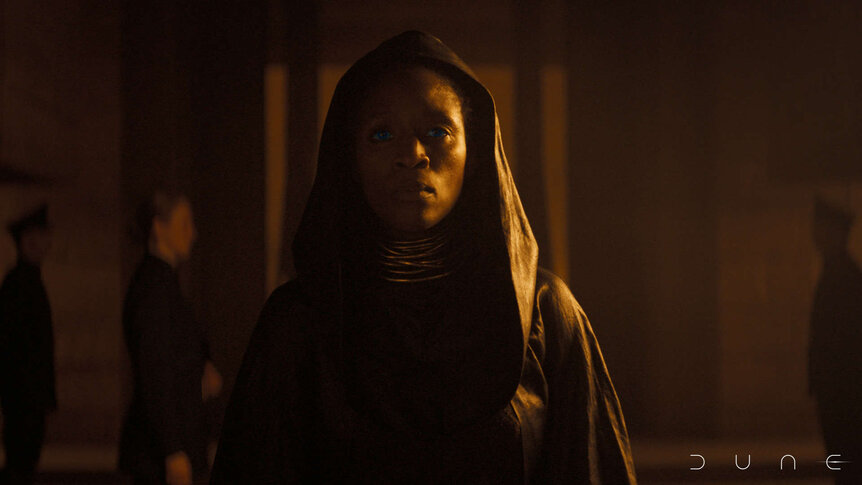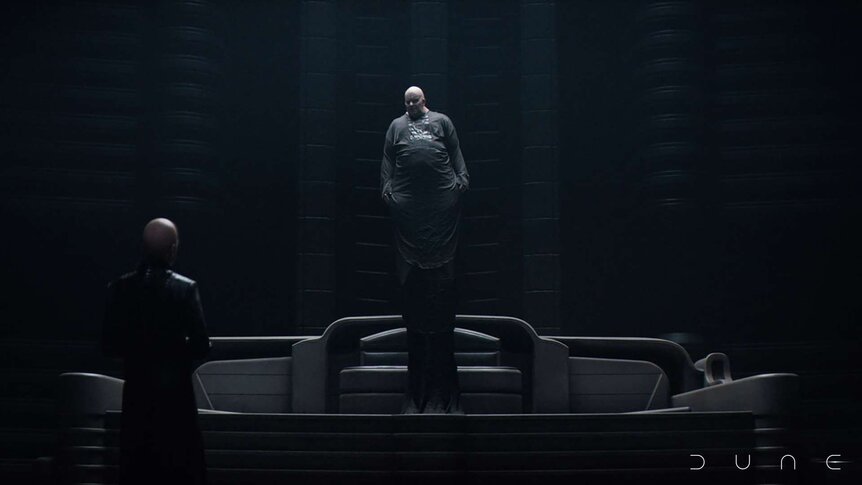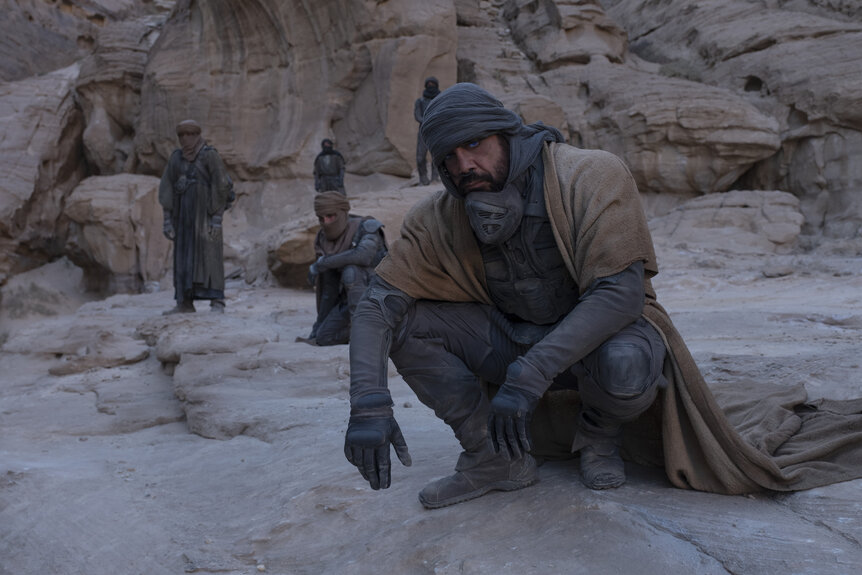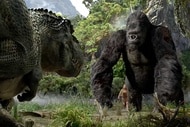Create a free profile to get unlimited access to exclusive videos, sweepstakes, and more!
Dune Director Denis Villeneuve and cast take us on a deep dive into the making of a sci-fi epic
The director of 'Dune' reveals why this was the most intense shoot of his life.
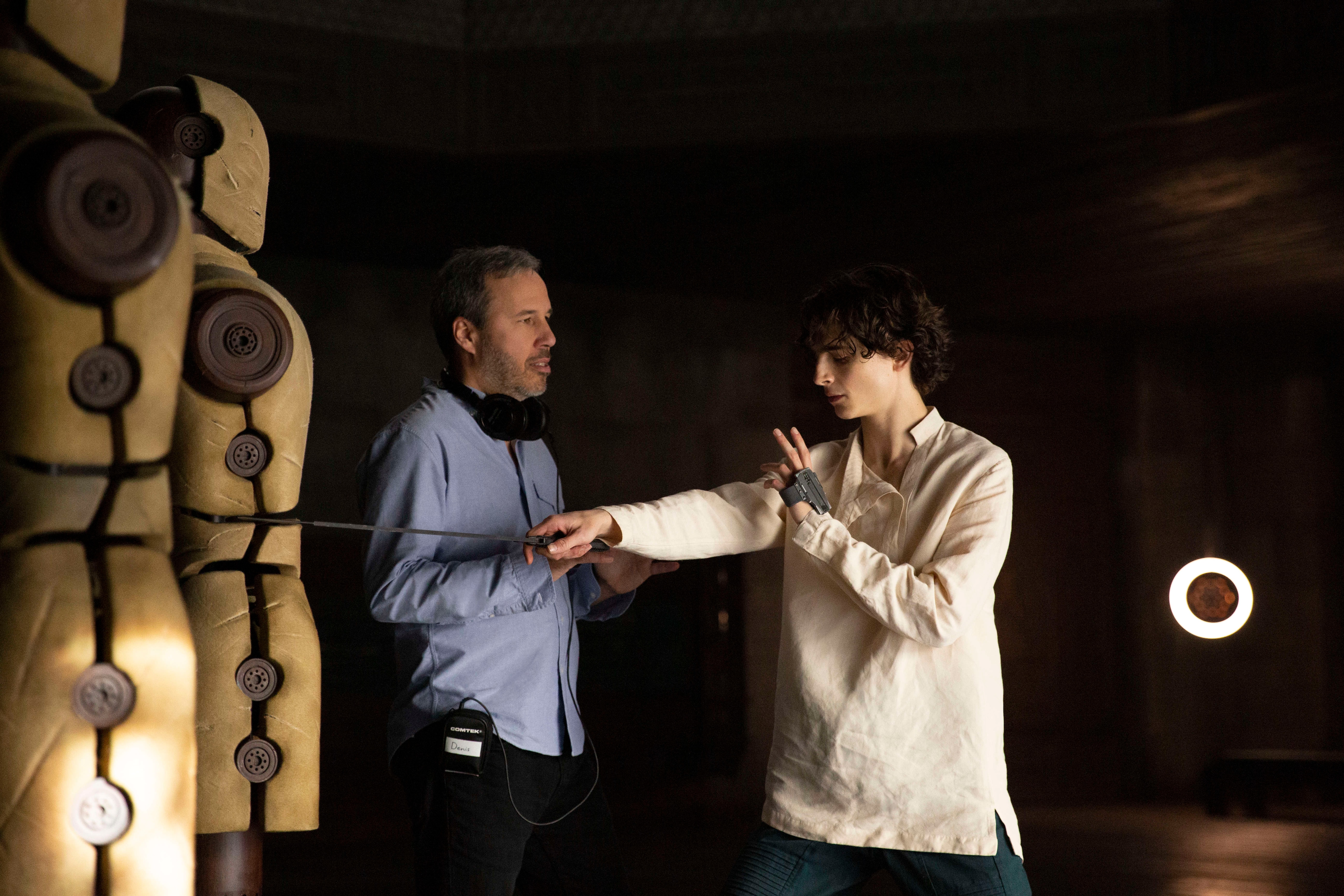
More than 30-years ago, director Denis Villeneuve read Frank Herbert’s science fiction novel, Dune, and a creative intention was born. Keeping the novel near his bedside for years, Villeneuve became a filmmaker who spent decades imagining how he would adapt the novel into a cinematic spectacle.
Solidifying his storytelling prowess in the sci-fi genre with 2016’s Arrival (2016) and Blade Runner 2049 in 2017, Villeneuve finally got his opportunity to make the Dune he wanted to see, on a massive screen, with Timothée Chalamet stepping in to the role of Paul Atreides.
With Herbert’s book as his guide, Villeneuve tells SYFY WIRE that, “it was one of the goals, and one of the objectives, to try to bring images that are in the book and try to be as close as possible to the spirit in the description in the book.”
Not exactly easy to do with so many sci-fi films of the last 30 years already cribbing the visual aesthetic of worlds found in books like Dune and Foundation. Villeneuve says he knew that was a handicap going into production, but he leaned on nature to realize his version of Dune as unique. “To be frank, when I saw the very first Star Wars in 1977, my favorite scenes were the ones that felt the most natural — like when we see the droids at the beginning. There was something about the strength of nature, and I've been raised doing documentaries where nature is your most powerful ally. I tried to bring that into Dune. Strangely, I tried to do a sci-fi movie a bit like a documentary, using nature as a strong ally, instead of fighting against it.”
Along with Villeneuve, SYFY WIRE talked with some of his cast, including Rebecca Ferguson (Lady Jessica), Oscar Isaac (Duke Atreides), Josh Brolin (Gurney Halleck), Stellan Skarsgård as (Baron Vladimir Harkonnen), Dave Bautista (Glossu Rabban), and Javier Bardem (Stilgar), about key scenes that help define and bring to life this much-anticipated take on Dune:
***Spoiler Warning: If you haven’t read either the book or have seen the movie, stop reading now.***
These are the Scenes Villeneuve Really Wanted
Denis Villeneuve, Director/Co-writer: I will definitely say that the scene like the gom jabbar, or the arrival of the Bene Gesserit sister on Caladan — or everything involving the desert, like Paul's first encounter with his first footsteps on the sand — or Paul meeting with the Fremen in the desert, are things that I had envisioned a long time ago.
And I will say that I was really excited [because] at first we started with the arrival of the Bene Gesserit Mother (Charlotte Rampling) and the gom jabbar scene, and that was a blast to shoot because I brought the image exactly the way I wanted them to be. And that created, right at the start of the shooting, a deep, pure joy.
The Relationship between Lady Jessica and Duke Atreides
Oscar Isaac, Duke Atreides: I think [their relationship] was something that [Denis] was always looking at and thinking about and trying to understand. For a two hour and 45 minute film, it's still quite economical when you think about everything that he needs to cover within that book. Trying to find ways to be as concise, but as strong as possible, and that was an evolution as it went on. Scenes came in and scenes came out. Ideas came in, new lines came in. A lot of different things were experimented with, which was a great feeling because you knew that there was a lot of care being taken into how do we really explore that relationship, and make it feel real in the most economical way?
Rebecca Ferguson, Lady Jessica: I think our love in this film was based upon the safety of them [as parents] and the generating threats around our child; that's kind of how we had to activate it. But I think with the core knowledge of the actual attraction between them, even though it's a planned relationship, something grew from it that was probably quite unexpected from Jessica's point of view in falling madly in love with the Duke.
Isaac: And it's easy to take for granted because there's only two scenes that are just the two of us. Everything else is quite formal. It's all done in little glances, tiny little moments, a hand touch, tiny connections.
Ferguson: We're in it together.
Isaac: There was even talk about — do we leave that line, "I should have married you,” But there's a boldness to it because the assumption is they are married. But then that's the last thing that he ever says to her.
On the change of gender for Dr. Liet-Kynes
Sharon Duncan Brewster, Dr. Liet-Kynes: Denis had explained he wanted to have a much more diverse cast and that he felt that the role of Kynes was the one to change. There are so many arguments that are occurring — pro and against — but as an actor and as a human being I know that yes, there are certain elements because of the way society is right now that, if you make a man play a role or a female play another role, there will be some differences. But most of the characteristics are the same. With regards to the changes that do occur, for me, there are so many thematically different themes anyway with what Frank has written. And as far as I understand it, and from what I've seen and taken from it, it only raises more conversation to be had because those themes are still already there. It's just a 21st century way of looking at it. In the 1960s, people weren't discussing things as openly as we do now. I think there's something really exciting about the conversations that will be conjured up from me being there.
How the film updated the Harkonnens
Villeneuve: The one character that I was feeling that didn't age well in the novel was the Baron Harkonnen. I felt that, in the novel, that character has a strong potential, but in the novel he is a bit more twisting mustache and talking a lot with the sexuality that [infers] "bad guys should be gay" and of course, this is so wrong. It's a character that I worked a lot on to make sure that it will make sense to me. I wanted the Baron to be more taciturn, less talkative, more thoughtful, deeply intelligent, an asset, but a horrific human being.
Stellan Skarsgård, Baron Vladimir Harkonnen: When I read this script, [I saw] this is not much of a role, but it also has a lure, the role. It's interesting because it is something fantastic, being able to play someone who weighs 400 pounds and trying to find a way, together with the prosthetic guys, that you can still be human within that. To make sure that there's not too much on your face so you can still have your facial expressions and also to be able to move, so you can have a physical expression in that prosthetic body. So when you're done, you're not just a lump of rubber. That was interesting, to find a way. And to make a very brutal person essential in his movement.
Dave Bautista, Glossu Rabban: I really wanted to show that there are moments of Rabban where he can't control himself, his rage, and he can't control his anger. I had a very limited opportunity to do that. It's weird because, on the page, the roles don't seem huge. But when I watched the film, The Harkonnens had such a strong presence. You always feel the threat and you always feel their presence. I can't take credit for that but what an accomplishment to do as a filmmaker to have people, or characters, with limited scenes but give them that ominous threat that they're always there.
Villeneuve: The idea [to show the Baron’s worst] is the humiliating display of the Duke at the end of this table as the Baron is eating. I thought that was quite horrific and it gives us a lot of information about the psyche of the Baron, and the psychopath he is. All the imagery on the scene was a way to try to express who exactly Baron Harkonnen is without words.
On finally revealing the Fremen to Paul Atreides in the last scene
Javier Bardem, Stilgar: That was the very first thing I shot. I think it was a six-day shoot; it was a whole week for that scene. I didn't feel any special pressure with it rather than a typical one of playing a scene where you don't know if it's gonna be any good. [Laughs.] Denis helped me with that.
Villeneuve: In the final sequence, when Paul meets the Fremen, Greg Fraser and I had the brilliant idea that we will not use any artificial light in the desert. It looks good on paper, but not when you try to shoot at nighttime. We used shadows. When we found the place where finally Paul will meet with the Fremen, that place looked exactly how I envisioned it when I read the book. It was a perfect, perfect, perfect place. Plus, it was surrounded by very high cliffs, like in the description of the book. And it will allow us to shoot without sunlight, but just for three hours a day. We had to shoot a very complex scene over the course of a week, but just three hours a week, which means that we were rehearsing all these scenes and then shooting like mad for three hours. It was very, very, very intense.
It was the most intense shoot of my life. It was so fun to do. Why? Because I wanted the planet to feel real. I didn't want the light to feel wrong. I didn't want to look like it was made artificial. I wanted the audience to feel that we are nighttime on Arrakis with a big full moon that is bright enough so you can see, and to create that effect was not easy.
Dune is now in theaters and on HBO Max.
